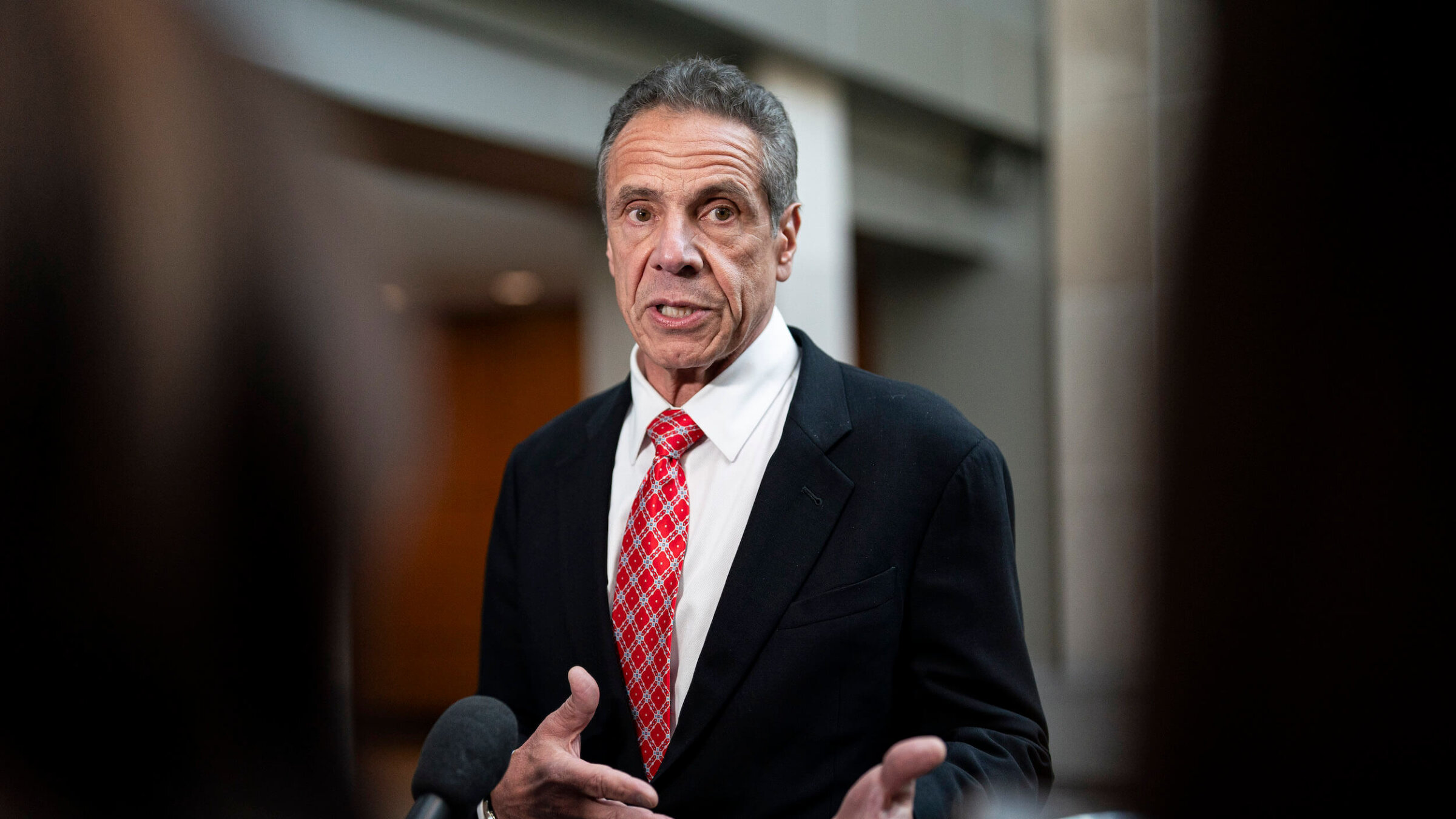Andrew Cuomo: Why weren’t Columbia protesters brought to justice?
The decision to drop charges against many of the protesters who occupied Hamilton Hall is a disgrace

Former Gov. Andrew Cuomo appeared on Capitol Hill on June 11. Photo by Al Drago/Getty Images
By dismissing 31 of the 46 cases against protesters who briefly occupied Columbia University’s Hamilton Hall in April, Manhattan District Attorney Alvin Bragg has done a disservice to the residents of New York City, who deserve a justice system that is willing to pursue cases even when they are difficult — and, dare I say it, may not align with the ideology of the prosecutor.
The Hamilton Hall protest, a climax of the movement of student encampments protesting Israel’s military actions against Hamas that swept campuses this spring, was intertwined with apparent support for Hamas’ Oct. 7 attack on Israel. If there was a question about the values informing the protest, it was made clear by slogans posted by the perpetrators, including “Political power comes from the barrel of a gun.” Many of the individuals involved covered their faces, and covered surveillance cameras.
A reasonable conclusion to draw is that all of this was designed to instill fear and create a sense of chaos while avoiding identification.
Bragg specifically cited the protesters’ masks in announcing the mass dismissal of charges; he said they made participants difficult to identify, and thus to prosecute. To me, that reads as an excuse: Surely the DA’s office must have extensive tools with which to develop and prosecute a case against someone who unlawfully occupied a building.
Wearing a mask is not a particularly sophisticated anti-detection device. In the Old West, gunmen robbing banks wore masks. Billy the Kid wore a mask. If they could prosecute bank robbers then, I’m sure we can overcome the mask obstacle now. No doubt, it was difficult to prosecute the Jan. 6 insurrectionists, many of whom wore masks, but the United States Department of Justice did just that.
The primary job of a district attorney — their obligation, imposed by the law — is to prosecute violations of the law.
Although a district attorney is permitted to exercise discretion — meaning, they are allowed to employ their own judgment and wisdom in pursuing justice — they are not authorized to pick and choose which laws they enforce. Their political interests cannot supersede the laws of the state. In his defense, Bragg has been up front about picking and choosing what laws he was going to prosecute. Within days of taking office, he even put out a memo outlining some of the charges he wouldn’t pursue.
We can argue whether it was wise for him to say he wouldn’t prosecute fare evasion on subways and buses at a time when the financial health of New York City’s mass transit system is weak, or possession of large quantities of marijuana at a time when illegal cannabis shops have been allowed to operate with virtual impunity.
But the targeting of Jewish New Yorkers after the brutality of Oct. 7 must be taken seriously.
The Hamilton Hall takeover ended when Columbia University, which had been loath to utilize the New York City Police Department, finally called them for assistance. By the end of the night, more than 110 people had been arrested, at least a quarter of whom appeared to have no affiliation with Columbia.
While it may not be that every case would have led to a conviction, the residents of this city deserved to have the cases prosecuted, because the failure to do so suggests that the justice system that represents them is far from impartial. As the opening lines to every episode of the beloved TV series Law and Order eternally remind us: “In the criminal justice system, the people are represented by two separate yet equally important groups: the police who investigate crime and the district attorneys who prosecute the offenders.” It is necessary that the latter group not fall down on the job.
It was particularly necessary they not do so in this case, because by letting the cases lapse, Bragg’s office has sent the message at this time of increased antisemitic activity that those looking to instill fear in Jews by creating chaos and destruction can do so with reckless abandon. They have given the impression that certain crimes are not worthy of prosecuting and that certain groups are not worthy of protecting. As a serious secondary consequence, Bragg’s decision is likely to further dishearten the majority of New Yorkers who believe that the criminal justice system has been politicized.
If our leaders give people a reason to mistrust our institutions, they will do just that. Is there any wonder that so many of our Jewish brothers and sisters are concerned? We all should be concerned. Equal justice under the law is not just some slogan. It is the cornerstone principle of the criminal justice system.
Thankfully, New York law provides for situations in which a district attorney does not fulfill their obligations. Gov. Kathy Hochul has repeatedly spoken about the importance of ensuring all citizens feel safe. She visited Columbia University and expressed sympathy with Jewish students. With the stroke of a pen, she could appoint a special prosecutor to investigate hate crimes and enforce these laws as written. In doing so, she would leave Bragg without the responsibility of continuing to worry about handling these “difficult cases.”
It’s past time to hold those engaged in these egregious acts accountable.
















